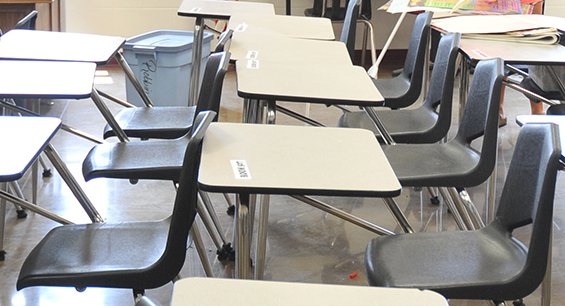The state's Charter Authorizing Panel on Tuesday gave preliminary approval to remote-learning plans proposed by seven operators of open-enrollment and conversion charter schools.
This latest group of newly endorsed online learning plans will now go to the Arkansas Board of Education for final approval to operate in the coming 2021-22 school year and for up to two years beyond that.
Approved Tuesday by the panel were remote learning plans for:
• The recently renamed Founders Classical Academy High in Bentonville and Founders Classical Academy-West Little Rock. Both campuses serve grades seven through 12. The schools were previously Northwest Arkansas Classical Academy and Quest Academy of West Little Rock.
• Bauxite Miner Academy in the Bauxite School District, which also asked for and received preliminary approval for an increase in the enrollment cap from 250 to 300, and the addition of grades kindergarten through five to the charter school that has served grades six through 12.
• Cave City Middle School Career and Collegiate Preparatory for grades six through eight and Cave City High School Career and Collegiate Preparatory for grades nine through 12.
• North Little Rock Center of Excellence that serves grades nine through 12 in the North Little Rock School District.
• Hot Springs World Class High School that serves grades 10-12, and Hot Springs Junior Academy that serves grades seven through eight.
• Prairie Grove Charter High School that serves grades nine through 12.
• Arkansas Arts Academy Elementary in Rogers that serves grades kindergarten through six and Arkansas Arts Academy High School for grades seven through 12.
The Arkansas Division of Elementary and Secondary Education and the state Education Board in January invited school districts and charter systems to submit applications to institute virtual instruction plans for at least the coming 2021-22 school year. More than 150 of the state's 262 districts and charter systems responded.
Tied to the remote learning plans are state waivers of rules and laws that cap class sizes at 30 students, limit teacher workloads to 150 students, require 120 clock hours of instruction per course and six-hour instructional days, set student attendance requirements, and require a minimum number of recess minutes.
Not all of the remote learning plans -- which have been scrutinized by a 16-member team of state agency staff -- incorporate all of the waivers.
The 2021-22 remote learning plans -- for families who choose to have their children taught away from the traditional classroom -- come after the 2020-21 school year in which all campuses were opened to students, but many districts also offered online instruction as a way to help combat the spread of the covid-19 virus.
About 21% or about 97,000 of the state's more than 470,000 students relied on remote instruction this past school year.
Recently released results from the state-required ACT Aspire exams in reading, English, math and science showed statewide declines in student achievement at the end of the 2020-21 pandemic school year as compared to the 2018-19 school year results. The exams weren't given in the spring of 2020 because schools were closed to onsite instruction in March of that year and the tests were canceled.
